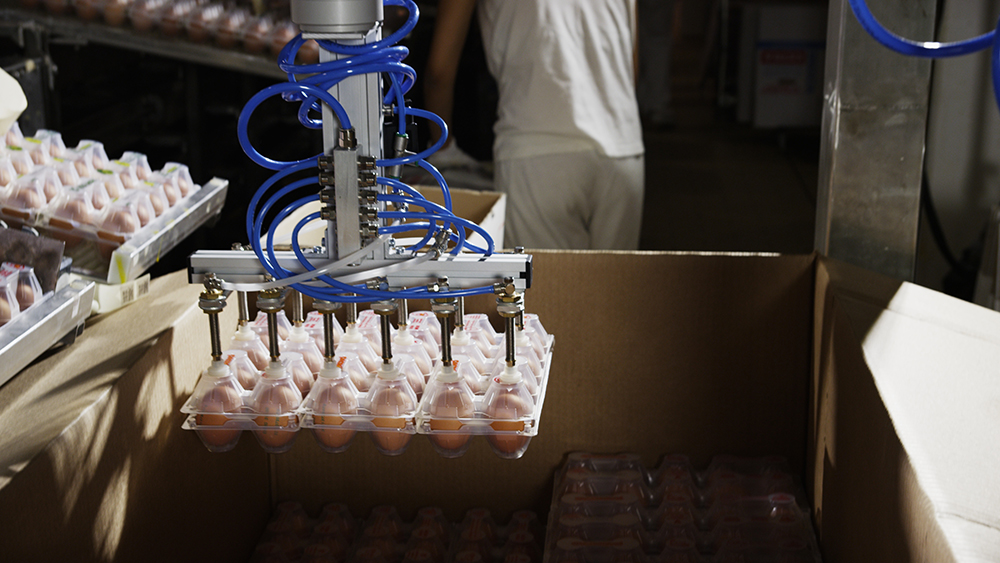Cobots are a key component of the Fourth Industrial Revolution. Human/ robot collaboration (HRC) is becoming more and more common, as agile and lightweight robots that can move payloads of up to 35kg are already available and on the market. These robots aren’t as “dangerous” as industrial robots due to their slower motion sequences and lower net weights. This means they can be more easily integrated onto the factory floor without taking up a large footprint, as there is no need for the caging that comes with industrial robots.
Implementing cobots within the food industry obviously comes with extra hygiene and care requirements. In the food industry, the quality of the products and their faultless further processing and handling is especially important.
When gripping already packaged food in preparation for transport there is the added need for delicacy which can easily be fulfilled by lightweight cobots. A perfect example of this is the Italian Cascina Italia company where over 2.5 million eggs must be packed every day by a UR5 robot with pneumatically controlled grippers. The robot packs around 15,000 eggs every hour.
Further to this cobots have proven to be useful in environments with special climatic or hygienic conditions as most can work in environmental temperatures between 0 and 50 degrees Celsius. They can also function in low-oxygen environments which would require complex equipment for any human staff. These high-care machines are sealed airtight with a smooth outer housing to ensure that there are almost no dust or deposits.
Other cobots such as the KR Agilus Hygienic Machine (HM) are designed to be used in applications involving direct contact with food stuffs and pharmaceutical substances. The combination of corrosion-resistant surfaces, food-compatible lubricants and stainless-steel parts ensure the highest level of hygiene.
Automation with cobots is an innovation which especially benefits small and medium-sized companies (SMEs). The use of robot arms can be implemented economically, and the small size of the robots and their simple programming allows them to be used for the most varied applications in the SME sector.

